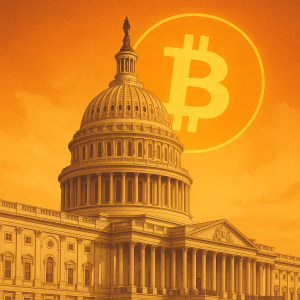
By Tigris Asset Management | May 2025
The idea of a Strategic Bitcoin Reserve is no longer confined to crypto Twitter threads — it’s now part of a formal discussion within U.S. federal policy. On March 6, 2025, former President Donald Trump issued an executive order directing the U.S. Treasury to evaluate the feasibility of establishing a reserve of Bitcoin, potentially using seized digital assets.
This raises an important question: Is this a real policy pivot or a symbolic nod to the crypto crowd?
In this article, we break down the likelihood of the U.S. actually implementing a Strategic Bitcoin Reserve and what it means for investors — especially in light of recent developments and the evolving Trump crypto narrative.
🧾 What Is a Strategic Bitcoin Reserve?
The term Strategic Bitcoin Reserve refers to the idea of a national government holding Bitcoin as a sovereign asset — similar in principle to the Strategic Petroleum Reserve or national gold holdings.
The executive order reportedly asks for a Treasury report on the feasibility of such a reserve — not its implementation. This is important context and was confirmed in a related press update.
✅ What’s Most Likely to Happen?
Symbolic Bitcoin Reserve Using Seized Assets
Our base-case scenario is that the U.S. Treasury will recommend the creation of a limited-scope reserve funded using seized BTC from prior enforcement actions. This creates optionality without direct market purchases or regulatory friction.
This approach would:
- Avoid using taxpayer money
- Allow for political signaling without financial destabilization
- Offer a way to hedge U.S. interests if Bitcoin’s global importance grows
⚖️ Why a Full Strategic Reserve Is Unlikely (For Now)
There are powerful reasons for the U.S. to move cautiously:
Large-scale BTC accumulation by a nation-state could trigger geopolitical and financial backlash, especially from G7 allies and international regulators.
Bitcoin is still volatile and lacks the monetary stability required for a sovereign reserve asset.
Regulatory ambiguity persists — including disagreement over whether BTC is a commodity, security, or currency.
The Federal Reserve is wary of crypto’s role in undermining dollar dominance.
For an in-depth critique of state Bitcoin reserves, this IMF policy brief offers additional context.
✅ What’s More Likely: A Symbolic Reserve — Not a Strategic One
Based on historical behavior from Trump’s first administration and what we know of his current political strategy, we expect the following:
A limited, symbolic Bitcoin reserve using seized BTC
…not a full-scale sovereign accumulation akin to the Strategic Petroleum Reserve.
This allows the administration to:
- Appeal to innovation-friendly and libertarian voters
- Hedge against anti-CBDC sentiment without committing national capital
- Position the U.S. as a potential leader in digital asset policy — without destabilizing financial markets
📊 What It Means for Investors
This isn’t the start of “Bitcoin as the next gold” — at least not officially. But it is a signpost:
- The narrative of Bitcoin as a strategic macro hedge is gaining political traction
- Crypto policy is becoming a presidential issue, not just a regulatory one
- Institutional flows could follow if symbolic adoption opens the door to broader legal clarity
For investors, this is not a “buy-the-hype” moment. It’s a chance to reassess:
- BTC’s role in a diversified portfolio — not just as a risk asset, but a potential geopolitical hedge
- Position sizing in digital assets as part of an alternatives sleeve
- Exposures to crypto infrastructure (e.g., exchanges, mining, custody) that may benefit from sovereign-level endorsement
🧭 Tigris View: Strategic Signal, Not Strategic Shift (Yet)
At Tigris Asset Management, we take a macro-informed, high-conviction approach to all asset classes — including digital. Our view is that the Strategic Bitcoin Reserve conversation is a political narrative with optionality, not an investment thesis on its own.
But narratives shape flows — and if the U.S. signals even symbolic interest in Bitcoin, it may unlock the next wave of institutional and sovereign demand.


No Comments